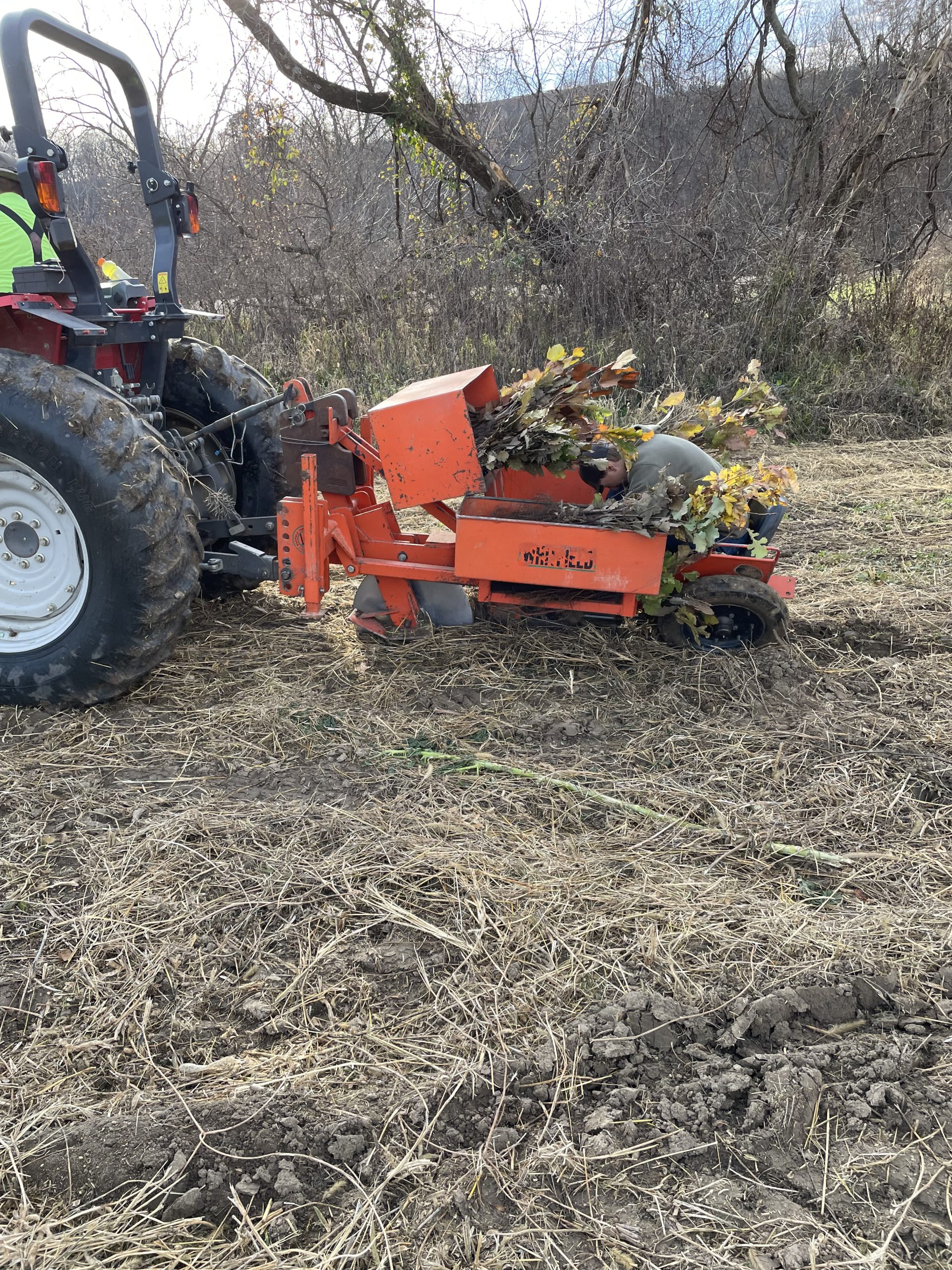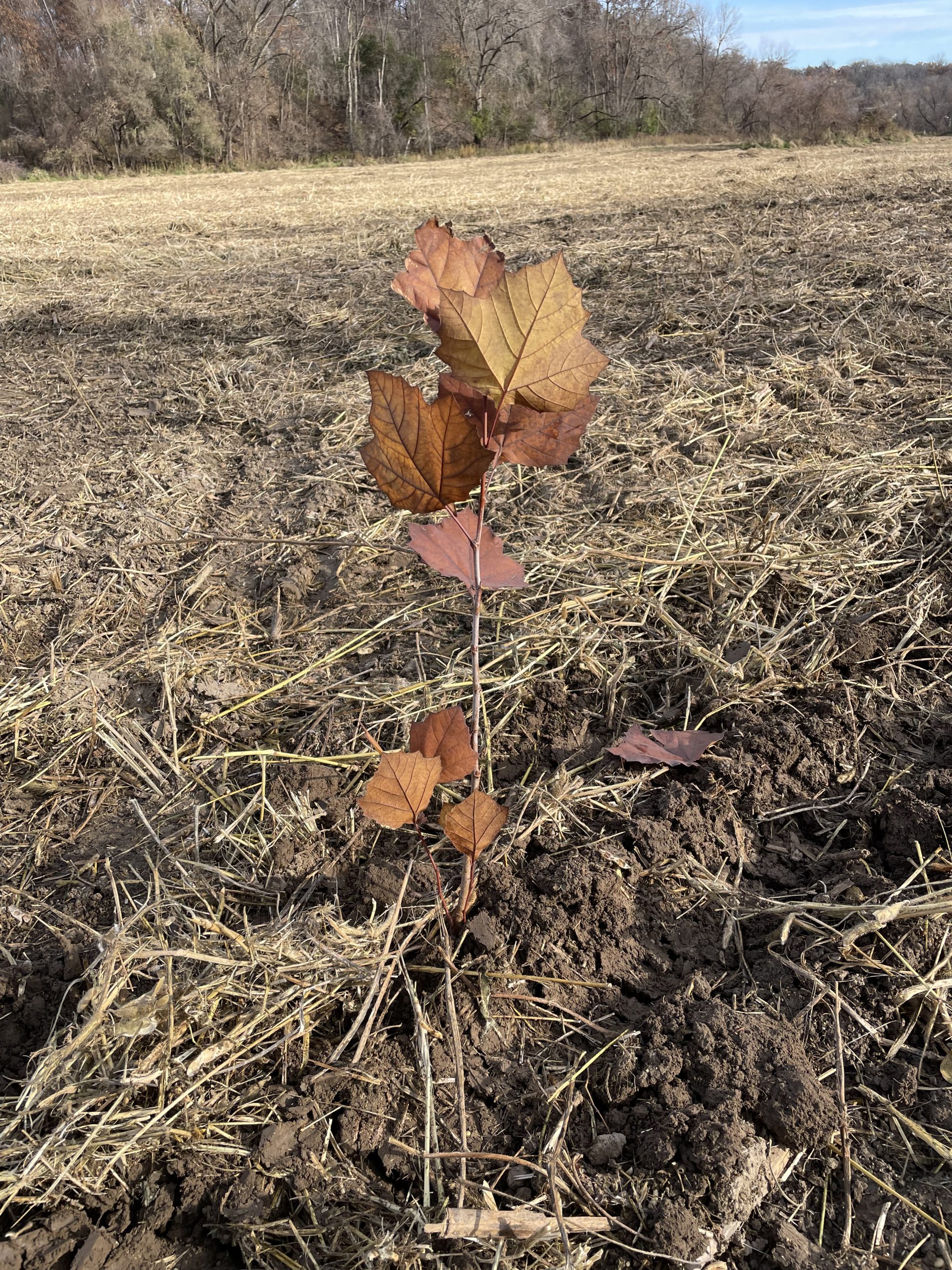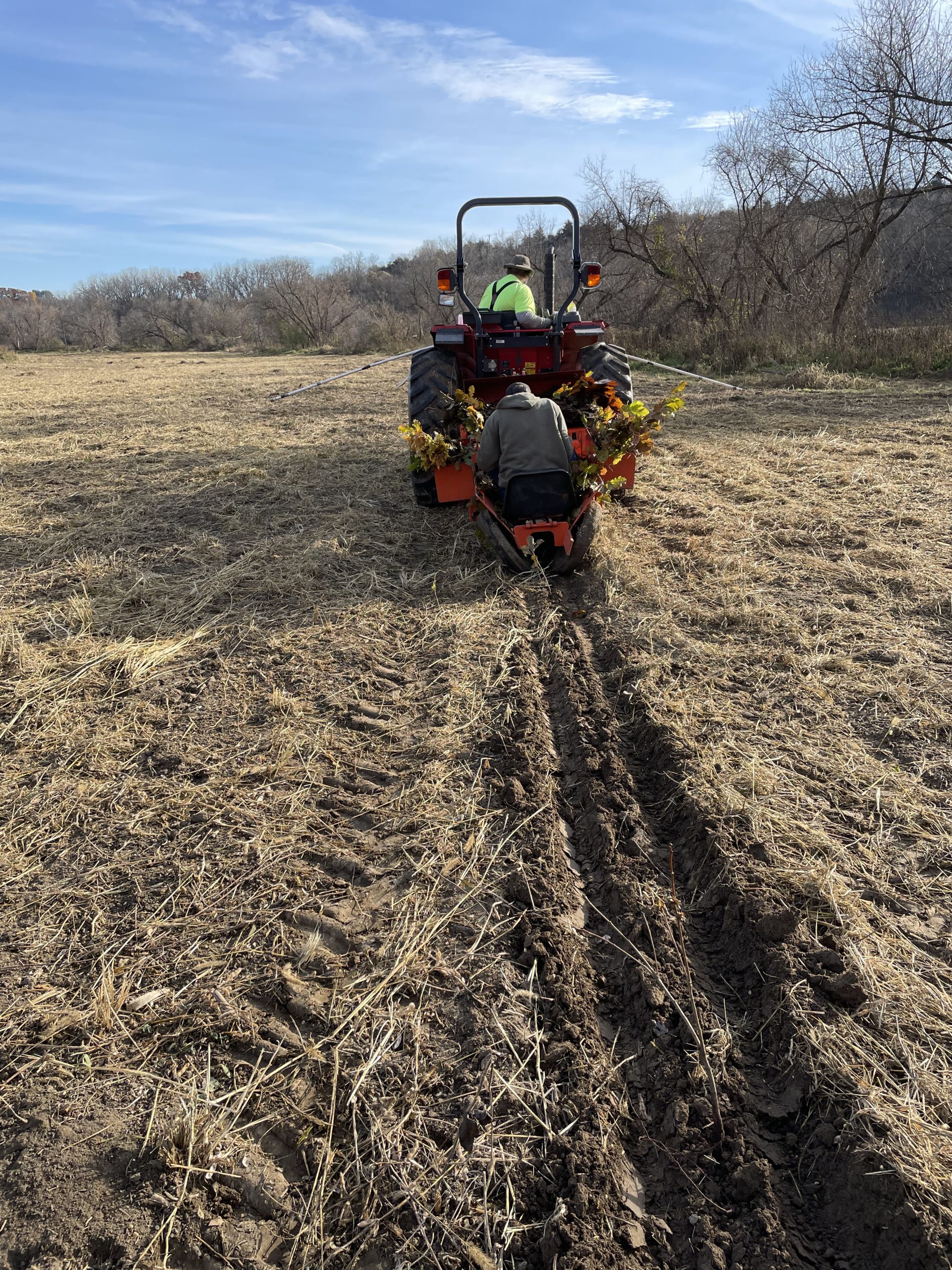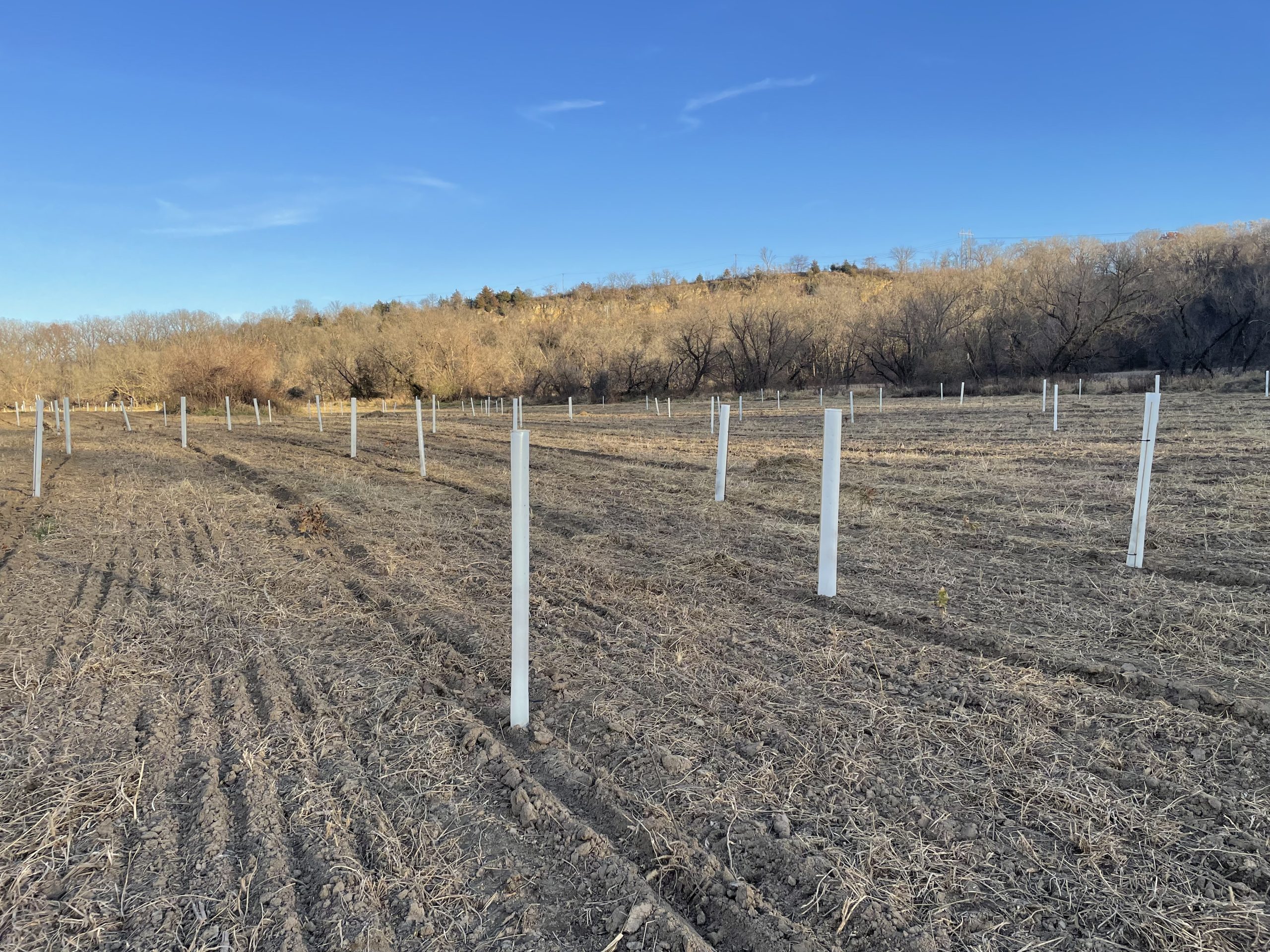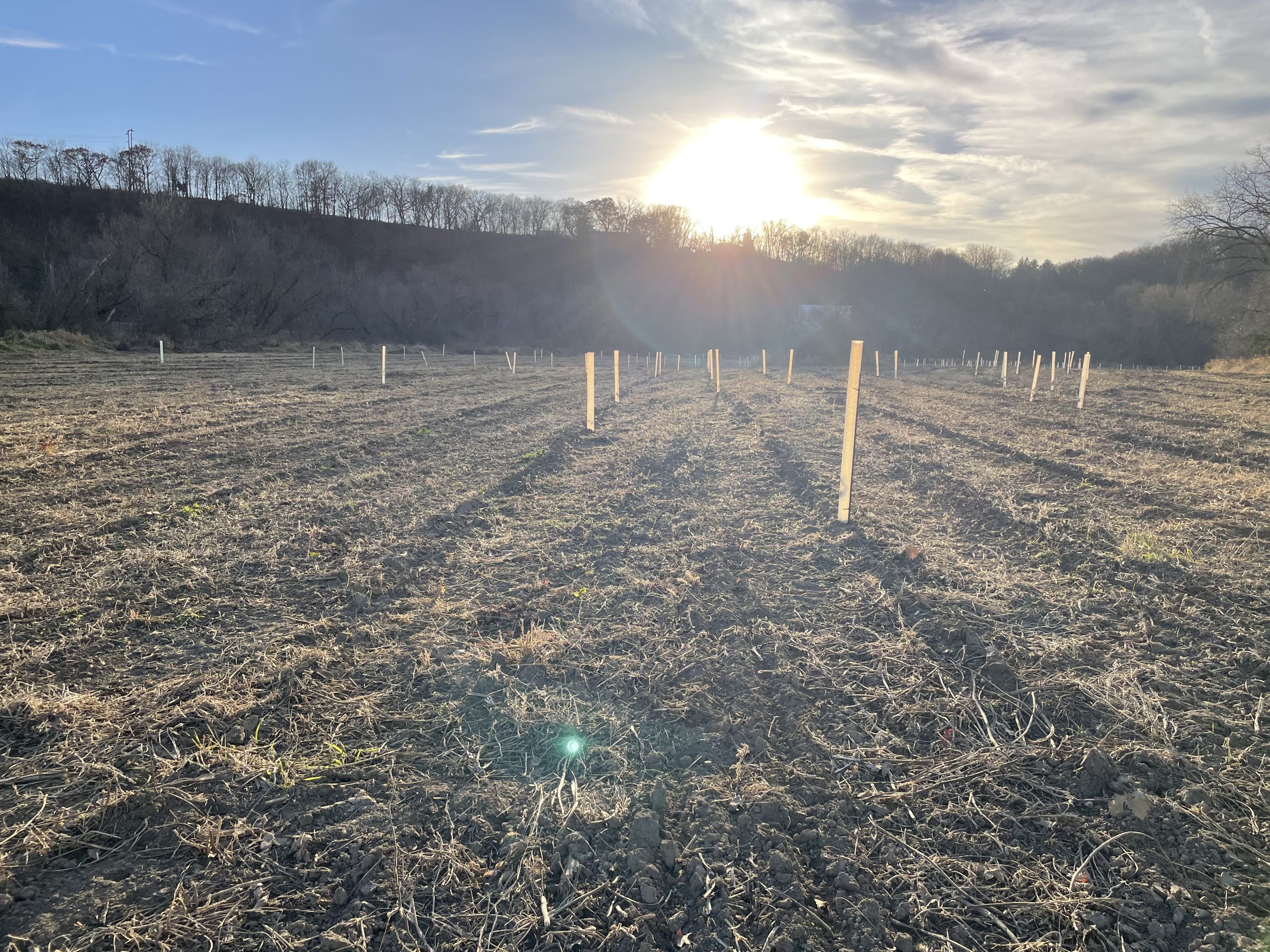SILT’s First Working Buffer Planted!
We are delighted to announce the successful completion of our inaugural Working Buffers initiative in Dubuque County. The Sustainable Iowa Land Trust (SILT) has achieved a significant milestone in our ongoing commitment to sustainable land use and environmental conservation.
This transformative project took place along the picturesque banks of Catfish Creek on an 8-acre former crop-field owned by Jeff Reuter. The restoration involved planting 5,800 seedling trees, strategically allocating 25% to food-producing varieties such as northern pecan, walnut, shellbark hickory, hazelnut, elderberry, and wild plum. Jeff Reuter has committed to a 15-year Conservation Reserve Program (CRP) enrollment, further solidifying the long-term sustainability of the site. Financial support from the Farm Service Agency (FSA) covered approximately 70% of the planting costs, with SILT contributing the remaining 30% and covering 100% of the first 3 years of maintenance. The overarching goal is to transition the land from conventional crop production to a perennial crop, offering critical stream protection and contributing to improved water quality and flood mitigation in Dubuque County. This successful venture sets the stage for future environmentally conscious projects, reinforcing SILT’s commitment to sustainable land use practices.
Why Working Buffers Matter: Working Buffers play a crucial role in preserving natural habitats, enhancing biodiversity, and protecting water resources. Through strategic tree and shrub planting, including fruit and nut-bearing varieties, we aim to revitalize the landscape and foster a sustainable, resilient ecosystem.
Get Involved: If you’re interested in bringing a Working Buffer to your Dubuque property, connect with our Dubuque Land Scout, Daryl. Reach out to Daryl at daryl@silt.org to explore the possibilities of transforming your land into a thriving, sustainable space.
At SILT, community-driven conservation is at the heart of our mission. Join us in making a positive impact on Dubuque County’s environment—one Working Buffer at a time.
Together, we cultivate a greener, more sustainable future.

